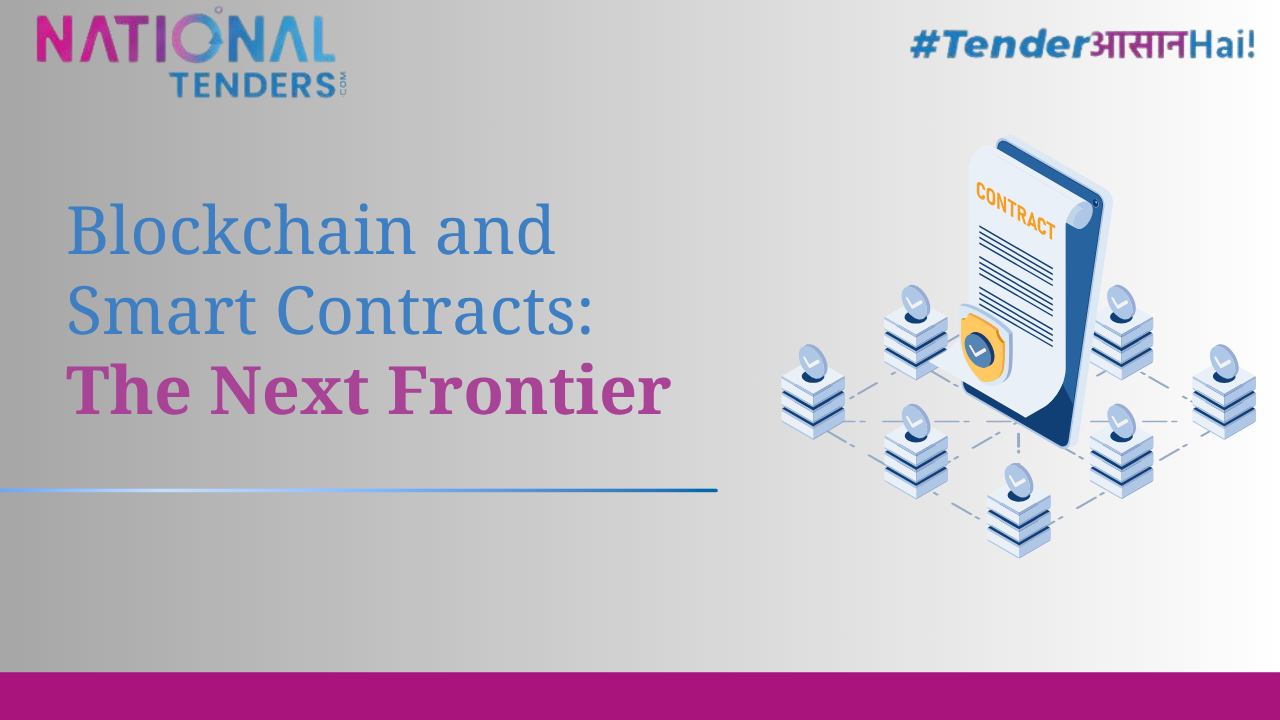- Home
- >
- Blog
OUR BLOG
A collection of stories about our people, our capabilities, our research, and the ever-changing face of our firm.

NationalTenders
How to find relevant government tender smartly? | 05 Jan, 2023
How to find relevant government tender smartly?
How to find relevant government tender smartly?
In any government tender bidding environment, it is tempting to resort to a Bid for Everything mentality. But this puts unsuitable pressure on your bid teams, limiting the time spent on individual tenders and reducing response quality and win probabilities. This blog will look at smart ways to identify and choose your best-fit high-value government tender opportunities.
What is a Tender?
A tender is a two-way process where one party advertises a project while the other acquires the raw material, processes it, and delivers the project. The suppliers and service providers accept the invitation to tender from the tender sites and submit the bids to win the given project. After winning the tender, the advertiser and the selected provider are bound to a legal contract. To start the online tendering process, you are first needed to pick the relevant tender. To be able to win a tender you need to find the tender that truly matches your company’s standards and abilities.
Things to keep in mind during selection of a tender So what are the things should you keep in mind when looking at all the tenders and deciding which ones to bid for?
Size of Contract
It is very simple. The buyers won’t award you a contract that is more than half of your annual turnover, unless it is a long multi-term contract. This is designed to try and shelter you against draining yourself and then failing to deliver the contract, which isn’t good for either of the parties.
Location of Contract
Even though a contract might seem ideal for you, it is important to ensure you take the location and all traveling requirements in consideration as this can often disintegrate your profit to a point where the contract is no longer operable.
Your Experience
Always make sure you take notes of any requirements for experience. More often than not, the buyers will require you to provide 3 examples of similar jobs to test this. If you can’t provide any similar jobs in the same type of environment, think about what all risks there might be in the environment in question and provide examples to suit these risks.
Your Capability
It is easy for us to think we can tackle anything, but what if things don’t go your way? What effect will that have on your business in long term? It is much easier and a safe option to start with contracts that are easily within your capability, and build your reputation with that and other clients by exceeding their expectations.
Your Capacity
Always make certain you have the capacity in all areas to deliver the contract. Think about what all can go wrong and make sure you have enough resources to make it right.
Your Business Strategy
Are you open to trying into another geographical area? Or you concentrate on a specific area and is this contract in it? Are you prepared to go in at a very low margin to get your foot in the door? Think about your strategy.
Your target market
Who is your target market? Will your experience transfer to this type of client/sector easily or are you starting from scratch?
Profit Margin
What level of margin would make this an attainable project for you? What is the modest price you can go to, while still making a profit? How does your costs compare with your competitors, as this will affect your profitability when compared to your competitors?
Competitors
Who else is likely to bid for your choice of contract? Are there other potential bidders you are unlikely to come out on top of? What sets you apart from these competitors and how can you demonstrate this to the buyer?
This is just a selection of things you should think about before evaluating whether to bid on a particular tender and you should always carry out your own due attentiveness. There is an abundance of opportunity out there, so there should not be any rush to bid for contracts that only partially suit your business and its current position.
Read More: Checklist to Win Government Tenders
 How E-Tendering is Transforming the Tender System in India
How E-Tendering is Transforming the Tender System in India Building Strong Vendor Partnerships in the Tender Ecosystem
Building Strong Vendor Partnerships in the Tender Ecosystem Unlocking Big Savings Through Smart Tender Strategies
Unlocking Big Savings Through Smart Tender Strategies How Generative AI Is Disrupting Tendering in 2025
How Generative AI Is Disrupting Tendering in 2025 Blockchain and Smart Contracts: The Next Frontier in Public Procurement
Blockchain and Smart Contracts: The Next Frontier in Public Procurement
SUBSCRIBE NOW
Kindly fill up the form